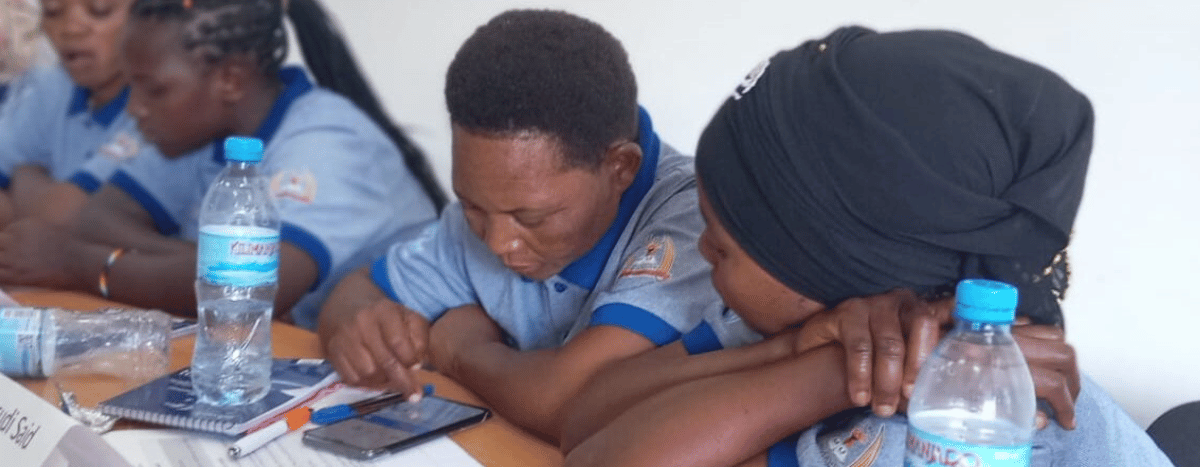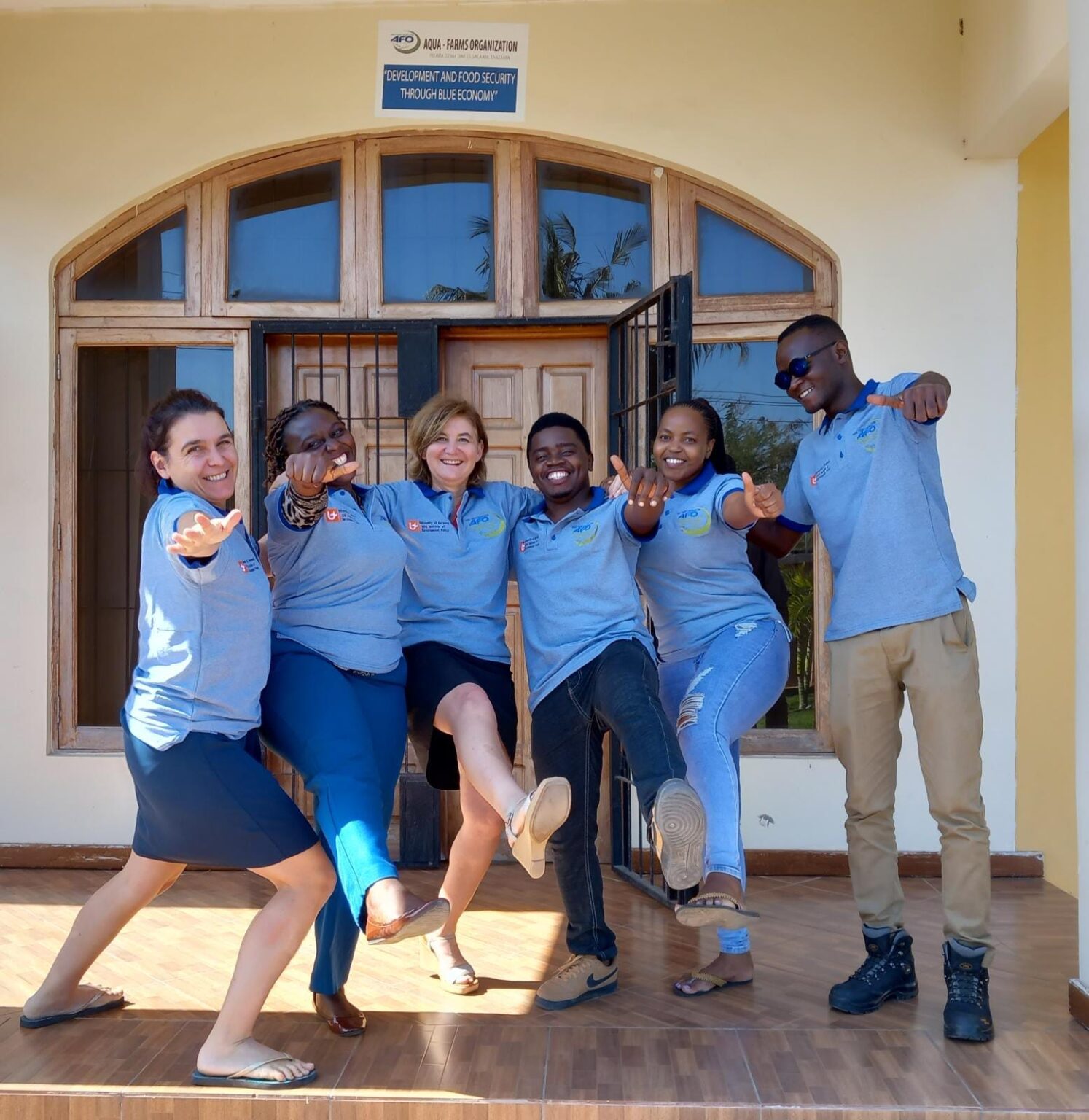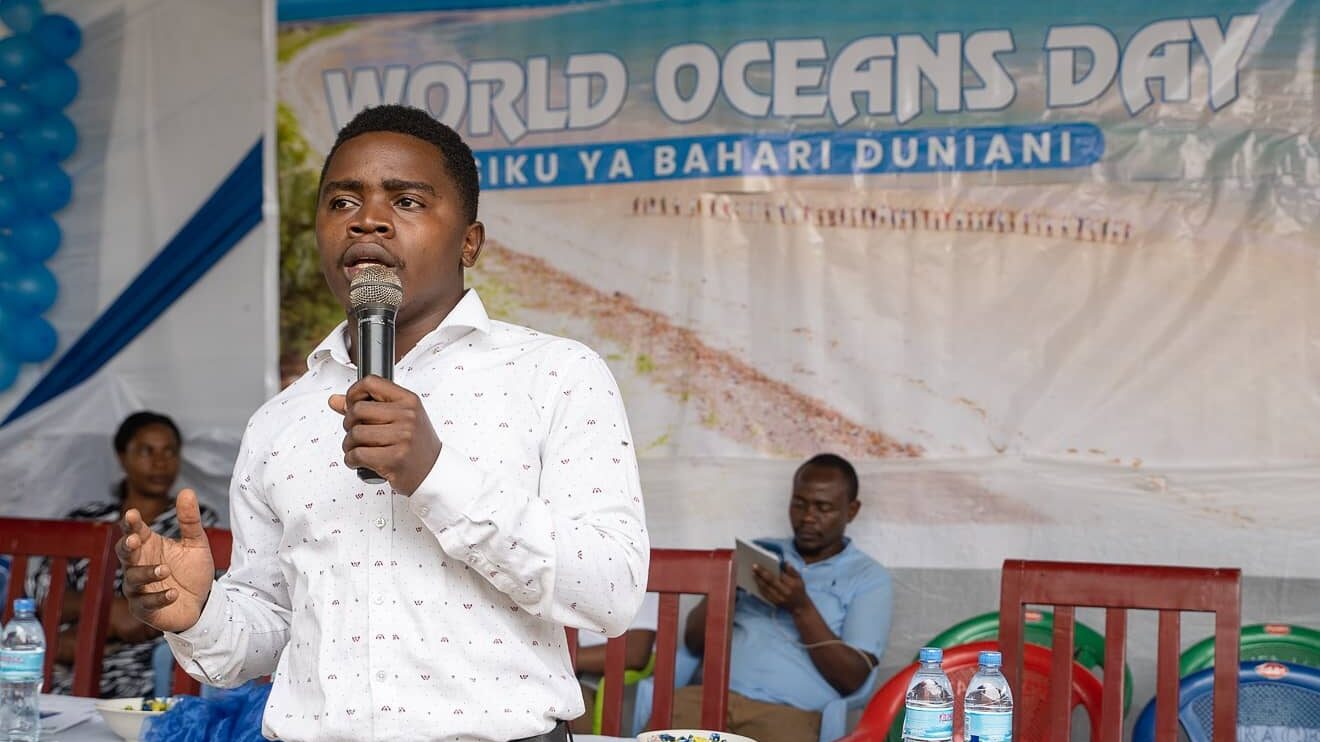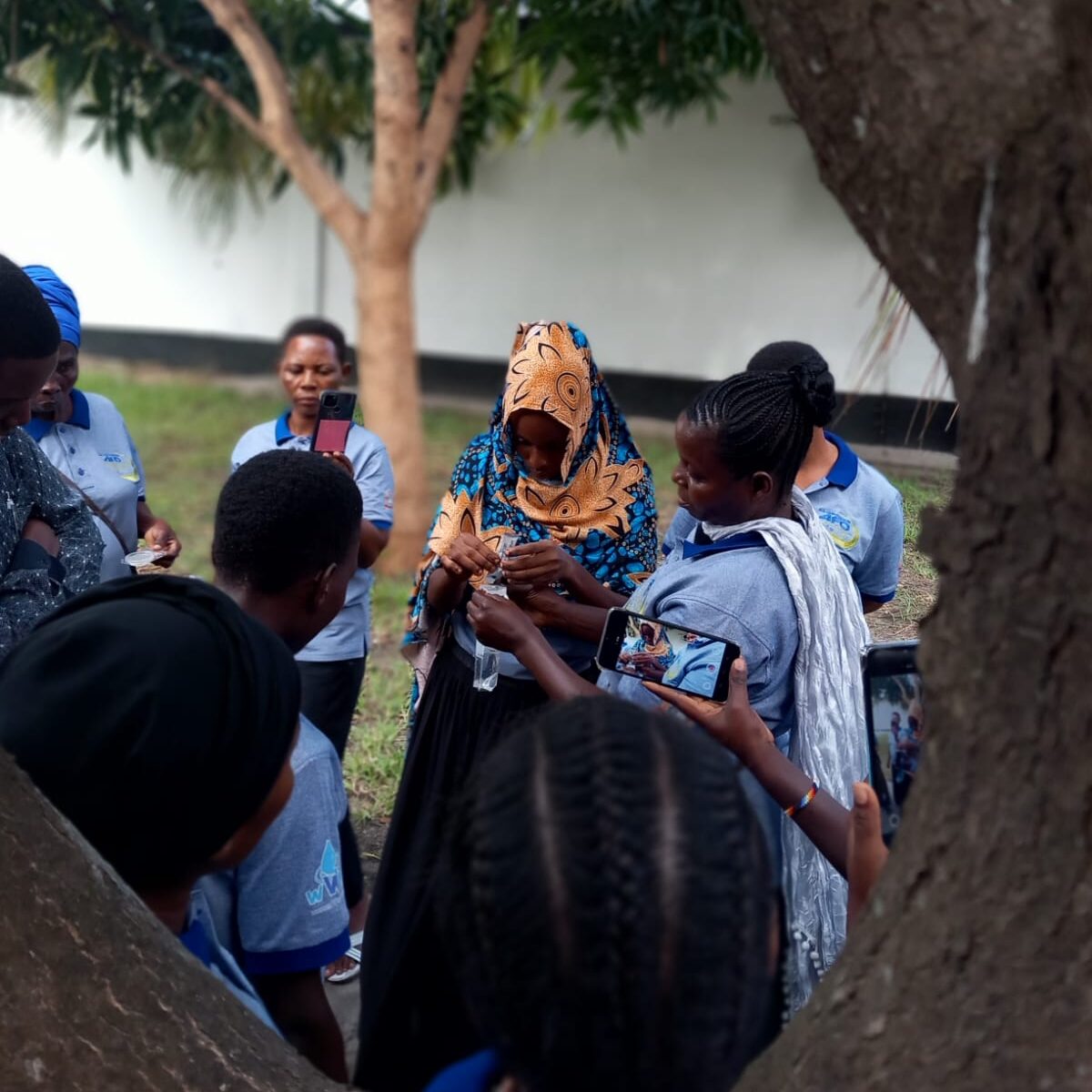
Researchers are working with local communities to make a tangible impact
Published on
Translation by:
CafébabelVery often, researchers and scientists complain that their word looks closed off and hard to be understood by the rest of the society. Could collaborations with local communities therefore be the magic solution to bringing the world of research down from its ivory tower? For this feature, which is part of our “Terrains Communs” series, we are heading to Tanzania where citizen science helps local communities to manage better water resources..
At The Institute of Development Policy (IOB), located in the centre of the Belgian city of Antwerp, researchers aim to "contribute to a real policy change ", according to the institution brochure. However, this is no small task.
In Tanzania, for example, the rural community has limited access to drinking water and the lack of knowledge about water quality leads to serious diseases. Although research is progressing, and solutions are being found elsewhere in the world, the results are not reaching these communities.
"Of course, as a researcher, you publish academic articles, which is very important for your career, but at the end of the day, you do the research because you want your results to be used", explains economist Nathalie Holvoet, professor at the IOB. For this reason, Nathalie and her colleague Sara Dewachter, also a professor at the IOB, decided to participate in a COESO pilot project to "connect citizens to science", in partnership with a Tanzanian non-governmental organisation.
In December 2021, the two women organised a conference in Morogoro, Tanzania, to launch a citizen science project there. They launched the 'Communitor' initiative, which brings together different actors from around the world, involved in citizen science and community-based monitoring.
There they met a former student of their institute, Cretus Joseph Mtonga. A 29-year-old from Tanzania, who co-founded the Aqua Farms Organization, an association that seeks to improve the use of water resources.
"We immediately felt that we had a common interest. So we started working on building this project together", recounts Sara Dewachter. Together, they decided to respond to the COESO’s call for projects and developed a "citizen science" project called Women Water Watch.
The pitch was to get Tanzanian women analysing the quality of river water. Women are often left out of local initiatives in this sector, despite the fact that they usually have relevant information about the water.
For Nathalie, Sara and Cretus, one thing was clear- women must be involved in the process of improving water management.
In June 2022, Women Water Watch, was selected by the COESO, allowing the real work to begin. Women Water Watch is a one-year experiment carried out by researchers and citizens across two continents.

Women Watch Watch started in late 2022 and is one of citizen science research project supported by the European consortium. Another pilot with three other partners in different countries at the crossroads between academics and civil society is developing games to increase climate emergency awareness. Those games aims at shedding new lights climate change dangers and is dedicated to young people from the Croatian coast. Another pilot project is talking place in the Belgian city of Ghent and wants to include parents of schoolchildren in research on the nutritional quality of school lunch boxes for their children.
The COESO wants to demonstrate the benefits of having researchers and citizens work together for scientific advancement. However, it is also, and above all, a question of having a direct, positive impact on society. So, what could be better than citizens participating directly in research?
The challenge of involving local communities
The biggest challenge for the Women Water Watch project, is succeeding in getting local communities involved, who are sometimes very far removed from ideas of public health, let alone the world of research.
This is where Cretus plays an essential role, as someone who knows a lot of people on the ground, speaks Swahili, and above all, has an academic background and scientific expertise in water.
In 2020, Cretus obtained a master’s in seabed management from the University of Antwerp, following a degree in aquatic sciences and fisheries.

Cretus was able to mobilise local stakeholders and identify possible sites (about ten Tanzanian villages relevant to the subject). With the help of Diana Tiholaz, a PhD student at the IOB working on water quality, and Nathalie and Sara, Cretus was able to select five villages as the [field of study] (https://coeso.hypotheses.org/4566).
In each one, four women have also been selected to participate as the "women monitors" who control the quality of the water.)
The women will receive training on water analysis, participate in debates and feedback meetings, as well as in exchanges with local politicians.
They can be old or young, mothers or students, the only requirement is that one person from each group must be able to speak English, to communicate with the researchers. The fact that some of the participants do not speak English is one of the more challenging aspects of the project for Cretus, who feels he is not always able to convey their emotion and veracity to his Antwerp colleagues.
However, all agree that the groups allow local communities to be better represented. "If you always choose people who are, say, close to the political leaders, then you’re always helping the same group of people", Sara explains.

At the beginning of the experiment, smartphones were distributed to all the participants. A mobile application was developed to input data and map out where water quality was good or bad, using red and green flags as indicators. Training sessions were held in rivers and classrooms, to teach participants to be able to quickly judge whether water is safe to drink or not, and water testing kits were also handed out with instructions on how to use them.
Although they are only halfway through, Sara, Nathalie and Cretus already consider the project a success just from looking at the messages, and the frequency of them, exchanged on the project's Whatsapp group between the Tanzanian women. For example, _"there are messages where people say that they have to boil the water more because it’s not clean, the children also participate, they play the game we developed on water awareness, there are photos in the group, and it’s all happening independently of us, in Swahili," Sara explains.
For Cretus, it’s even more flagrant. "I can see a clear evolution in their confidence levels when they speak. At first they were a bit shy, no one wanted to speak up, and now they’re fully confident. They ask the leaders questions, they follow up on water quality, etc. When we presented the first results, they were desperate to know what happened next. Also, in Tanzania you have this tradition of having a position in society, and I think now, these women have high positions in society. They’re very strong, they call them the water warriors.".
Cretus has also been able to benefit from the experience on a personal level. The organisational skills, rigour and experience of the three researchers really helped him move forward in his work, he explains.
The real impact of the project will only be visible at the end of the pilot, but Nathalie and Sara are enthusiastic. They only have good things to say about their experience with Cretus, who they believe removed certain barriers. They also emphasise the fact that the project was able to get off the ground and succeed, largely thanks to the already well-established relationship between the IOB and Mzumbe University in Tanzania, which has also been involved in the venture without being a formal partner.
Academic exchanges and projects had already taken place between the IOB and Mzumbe, and Sara and Nathalie had met Cretus and his organisation in the past. "We have built a relationship of trust and mutual understanding over years, so we know who is good at doing what, and how, and our different skills can be very complementary, and communication is very easy, etc.".
Cretus’ local knowledge was of huge help in facilitating the work, for example, in obtaining permits from scientific authorities in Tanzania more quickly. His prior visits to contacts on the ground and information gathering, also allowed the project to move forward quickly and efficiently and on the basis of reliable data. Without a solid anchor on site, the problem of the researchers being disconnected crops up once again.
Despite their physical distance from the action, Nathalie and Sara say they wouldn’t hesitate to do it again. But for now, they are due to meet Cretus for an online meeting to discuss the final requirements before the project is completed.
This story is part of the Cafébabel series "Terrains Communs"
This project is in collaboration with the research project COESO (Collaborative Engagement on Societal Issues), at the intersection of social sciences and participatory research. Coordinated by l'Ecole des Hautes Etudes en Sciences Sociales, COESO is funded by the Horizon 2020 research programme. The content of this article can in no way be taken to reflect the views of the European Commission, and the Commission is not responsible for the information contained herein.
Banner: A training of this research project © COESO
Translated from Quand les chercheurs s’associent avec la société pour renforcer leurs impacts concrets



